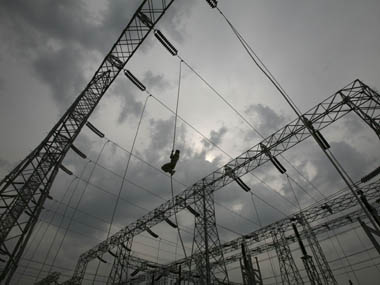The lessons from the Delhi elections are many and the BJP which has taken this defeat most to the heart will take it very seriously. Expect a fresh round of rumblings among the old guard and new ones to explain, exploit and joust for new power equations. But the scary part of these elections is the unbridled growth in promises. The Aam Admi Party won a sweeping victory on the back of a ‘positive vote’ which promises the citizens of Delhi a world class city. A city whose Chief Minister is nothing but a glorious Mayor with no power over its own police. The power situation is not new to the incoming CM Arvind Kejriwal as he has set on dharna in the past to demand a full state hood. Delhi is not a state with a budgetary surplus. It derives bulk of its revenues from property taxes, its second largest source of revenues is excise taxes on liquor. These two sources of taxation are not enough to fund all the promises that the AAP has made in the run up to the elections. A large section of the swing vote is willing to believe the AAP and its simplistic looking CM and party members as they present a more amenable face. To be sure, Narendra Modi’s traditional loud style did not appeal well to the cynical Delhi [caption id=“attachment_2092403” align=“alignleft” width=“380”]  Reuters[/caption] voters. In spite of the cynicism, the people are willing to give Kejriwal another chance because they still feel that he is not a traditional politician and is clean. They are willing to believe all the promises he make. But can a clean politician or can a corruption free Delhi government deliver free WiFi? Is that a qualification enough to deliver water and power? Last time around, Kejriwal had rushed into a headlong collision with the private power distribution companies in Delhi. This time his rhetoric has been less against corporates but his promises have been no less. Even though the party was supported by the left parties, including CPI (M), it did not attack corporates directly during its election campaign. Saner voices like Yogendra Yadav continued to say that the party does not subscribe to leftist view of politics and believes it can still serve the people without harming the companies. This is an interesting but muddly middle path that does not really clarify how will the party meet the economic aspirations of the Delhi state. Yes, every elections are about aspirations, and if Modi came to power it was because his loud and confident style swayed the masses. Though, anti-incumbency had an equal or more role as communication. But if the Delhi elections are to be seen as a loss for Modi, then it means that the disenchantment of Delhi voters has been quick and the reaction swifter. But will AAP fare better with its promises? Will it be able to channelize disenchantment into productive measures? Last time around, the activist mode of the party meant that it saw bureaucracy as a problem, did not understand administration or its role as a government. Last time, the party adopted the fear factor to bring the notorious Delhi bureaucracy in line. This worked to the extent of ensuring attendance. Fear only works with those government officials who are ambitious not to get a black mark, it does not work with all, and it does freeze the bureaucracy up. Delhi citizens could not witness the freeze in the short span of 49 days. But both Modi and Manmohan know that the bureaucracy has the amazing capacity to slow things down while showing enormous activity. A corrupt bureaucracy will not function under pressure of fear. The biometric attendance system in each ministry ensures just attendance not performance. How many great civil servants will AAP be able to inspire, attract and engage to ensure just delivery of services? It is unlikely they will commit the same mistake twice but will we see the emergence of new administrative political class from the heart of AAP? Only time will tell. But what is unfortunate for the party is that it does not have the time. TV anchors are bursting with enthusiasm waiting to tear down into a small party that has come to power. Journalists will be looking for stories to show a party down that can hardly retaliate against their owners. There will be no honeymoon period for this government as it struggles to establishes itself. Everything will be under scrutiny: How party leaders are reacting? Is arrogance creeping in and acquiring a momentum of its own? Is the party bossed controlling it? Amidst all this, much against the global and national trend of user charges for services, they have decided to offer free water, power and WiFi. While they will now differentiate and say the free part will only be for a section that uses a minimum, and the charges will be loaded for heavy users. Last time, they did it successfully for water and people did not object though low charges did not guarantee availability. But this time if they decide to do this for power, they will face opposition from the distribution companies. WiFi may still be relatively easier if they are able to convince a vendor to make the capital investment and give free usage for light users and recover through advertising and charges for heavy users. For availability of power, water or broadband a new experiment is set to begin for Delhi citizens. It will surely stretch the current models of urbanisation. K Yatish Rajawat is a senior journalist. He tweets @yatishrajawat
Will AAP fare better with its promises? Will it be able to channelize disenchantment into productive measures?
Advertisement
End of Article


)

)
)
)
)
)
)
)
)



